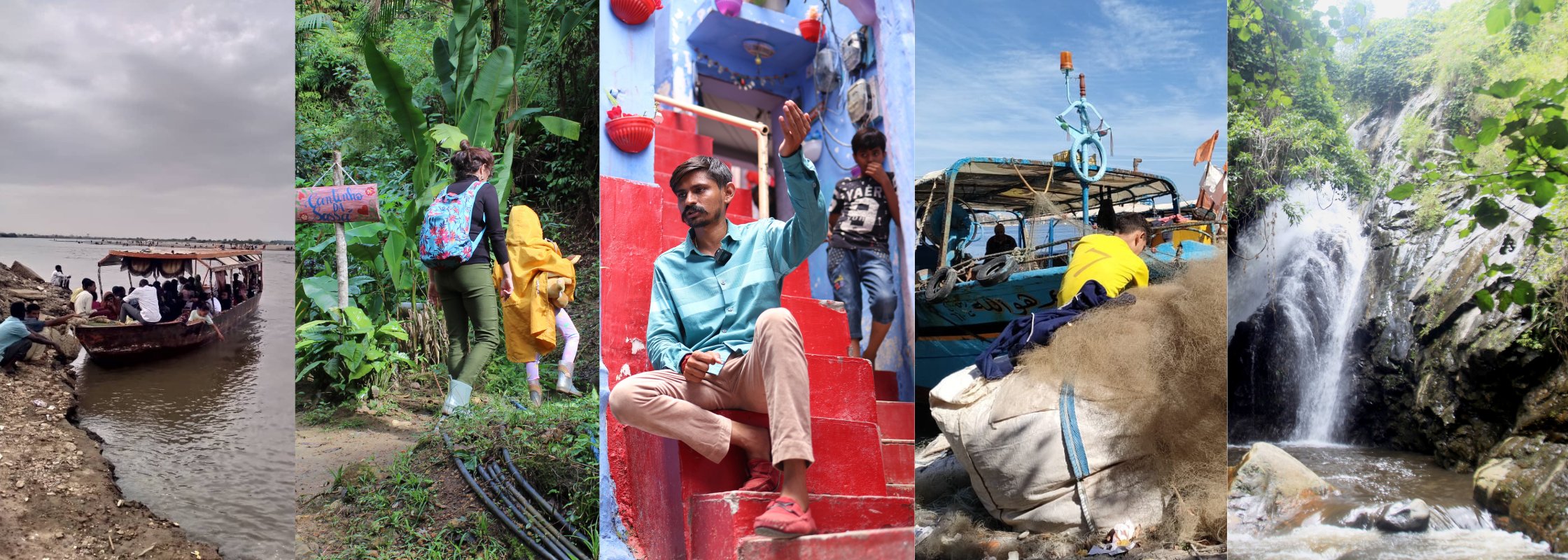Publication Release
ICCROM, through its flagship programme First Aid and Resilience of Cultural Heritage in Times of Crisis (FAR) is pleased to present the results of an innovative implementation research from five climate hot spots worldwide, developed under a 30-month capacity development initiative, Net Zero: Heritage for Climate Action. This study, field tested in Brazil, Egypt, India, Sudan and Uganda shows how conserving heritage can lead to tailored and integrated solutions that address disaster risk reduction, climate action, and the promotion of peacebuilding.
The study’s findings are now available for free download in an open-access special edition of the Journal of Cultural Heritage Management and Sustainable Development, produced in partnership with Emerald Publishing.
Discover the Five Transformative Stories
The Climate-Culture Story: Community-led Integrated Strategies for Heritage Safeguard, Climate action, Disaster Risk Reduction and Peacebuilding publication features five preliminary case studies, each illustrating how local knowledge and climate science can intersect to create impactful strategies:
Jodhpur, India: A culture-based heat action plan integrates traditional knowledge to combat extreme heat events, enhancing community health and resilience.
Kasese, Uganda: Local farmers have planted native species to mitigate flood risks, showcasing the power of traditional agricultural practices in climate adaptation.
Rashid, Egypt: An early warning system for floods and storms has been developed based on Indigenous knowledge, empowering residents to respond proactively to climate threats.
Ubatuba, Brazil: Community seed banks have been established, enhancing food security while preserving local biodiversity and cultural heritage.
Tuti Island, Sudan: The Taya system, a community-led approach to flood risk management, has been documented and shared, helping to build resilience in the face of ongoing challenges
Edited by Aparna Tandon, Senior Programme Leader of the ICCROM flagship programme FAR, who conceived the Net Zero: Heritage for Climate Action project, with guest editing by Prof Valerie Higgins of American University of Rome, this special edition offers a compelling narrative from Australia’s Martuwarra, shared by Dr Anne Poelina. Her story emphasizes the profound interconnectedness of people, place, culture, and nature, conveying a crucial message: to effectively address the climate crisis, we must shift from an "I" mentality to a "we" culture that fosters care, collaboration, and shared responsibility.
To enrich this discussion, we are pleased to include an insightful paper by Sanjaya Bhatia, Head of Office at the UN Office for Disaster Risk Reduction (UNDRR) Global Education and Training Institute (GETI), examining how climate change intensifies disaster risk, adding depth to our collection of case studies and offering a broader perspective on the complex challenges we face.
We extend our heartfelt thanks to our esteemed guest reviewers—Ms Alessia Strozzi, Conservation Officer at the Superintendence of Marche Region, Ministry of Cultural Heritage, Italy; Ms Lorraine Trento Oliveira, PhD researcher at the Faculty ITC, University of Twente, Netherlands; Ms Kara Roopsingh, Senior Heritage Preservation and Research Officer at the National Trust of Trinidad and Tobago; and Ms Mohona Chakraburtty, Project Officer at FAR programme —for their invaluable contributions. Their insights and expertise have significantly enhanced the quality of this publication.

